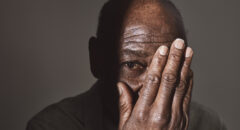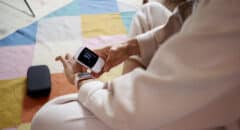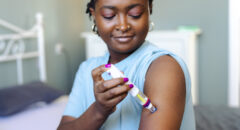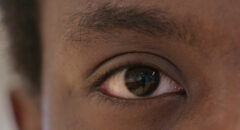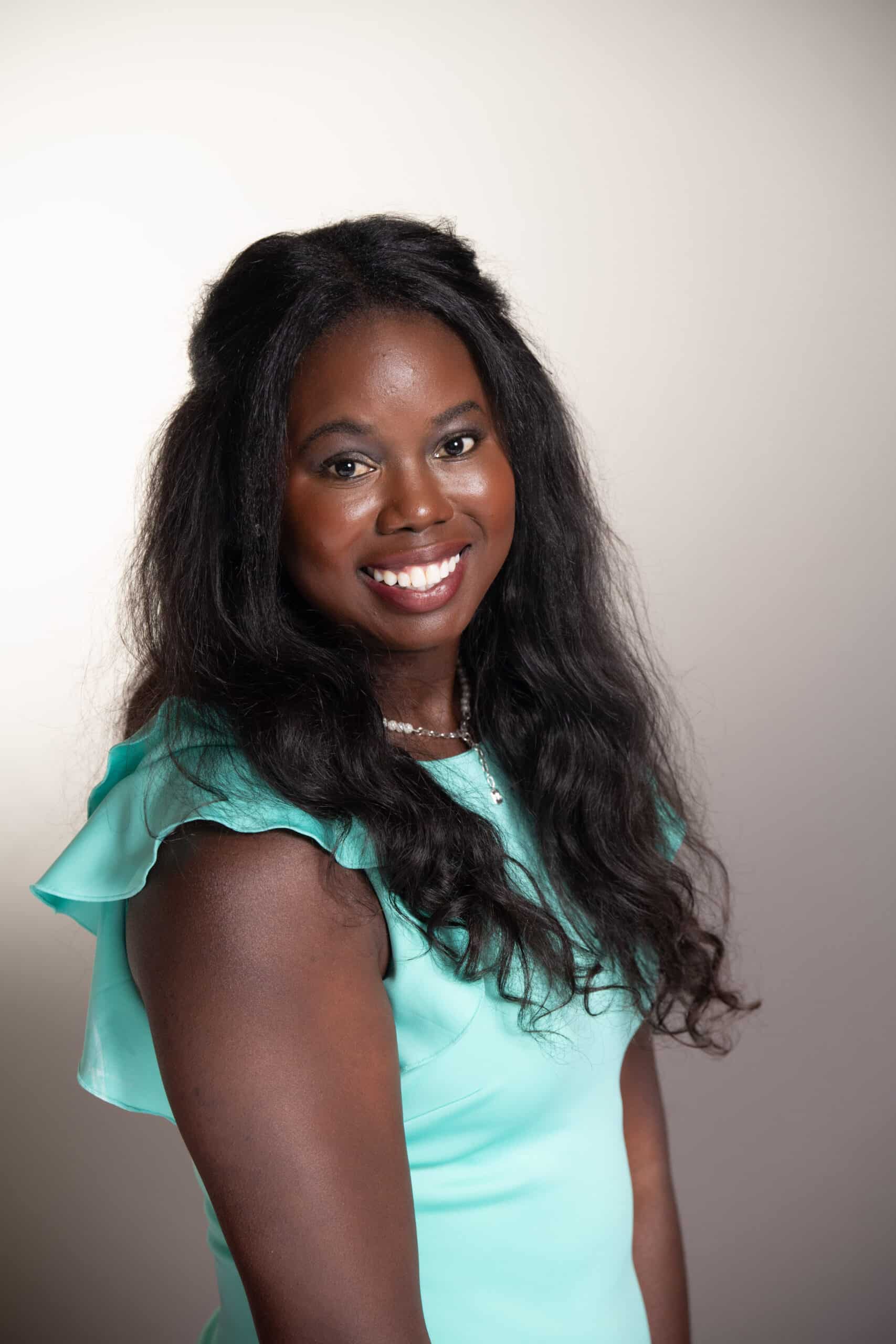
As a teenager, basketball was everything to Danica Collins—her friends, her outlet, and her identity. She played year-round with a solid team, and her social life revolved around sports and school. Her life-changing Type 1 diabetes diagnosis came unexpectedly after an ankle injury during a tournament.
“I was an active teenager… I loved sports, basketball. I played year-round… that was my life,” Collins tells BlackDoctor.
When she went to the doctor for the injury, she was initially put on crutches. However, routine tests revealed a critical issue: her blood sugar was “super high,” going into the 700s.
“I just remember them coming and they were like, ‘Hey, like your ankle’s good, but you need to go to the hospital,’” Collins shares, recalling her confusion.
RELATED: My Diabetes Diagnosis Was a Wake-Up Call – Here’s How I Took Back Control
Learning to Live Differently
Collins spent several days in the hospital, learning how to manage a disease she didn’t yet grasp. Initially, she struggled with the sudden, overwhelming change.
“I don’t have time for this. Like, I don’t [have] cancer. Can we deal with this later? I want to go to my game,” she recalls telling her mother. In that moment, she had no idea her life had “changed forever.”
She was determined to return to the court, leaning heavily on an immediate and strong family support system. Her parents and younger sister rallied around her. Her mother’s mantra was, “Look, we can do hard things.”
For Collins, playing sports presented a unique challenge: the adrenaline caused her blood sugar to spike (often to 300 or 400) during a game, followed by a dangerous drop (to the 40s or lower) later at night.
“I just remember my dad checking my blood sugar at 3:00 in the morning every day,” Collins explains.
At the time, she didn’t have access to the continuous glucose monitors (CGMs) or other modern diabetes technology many rely on today, making her family support and sheer willpower essential for constant management.
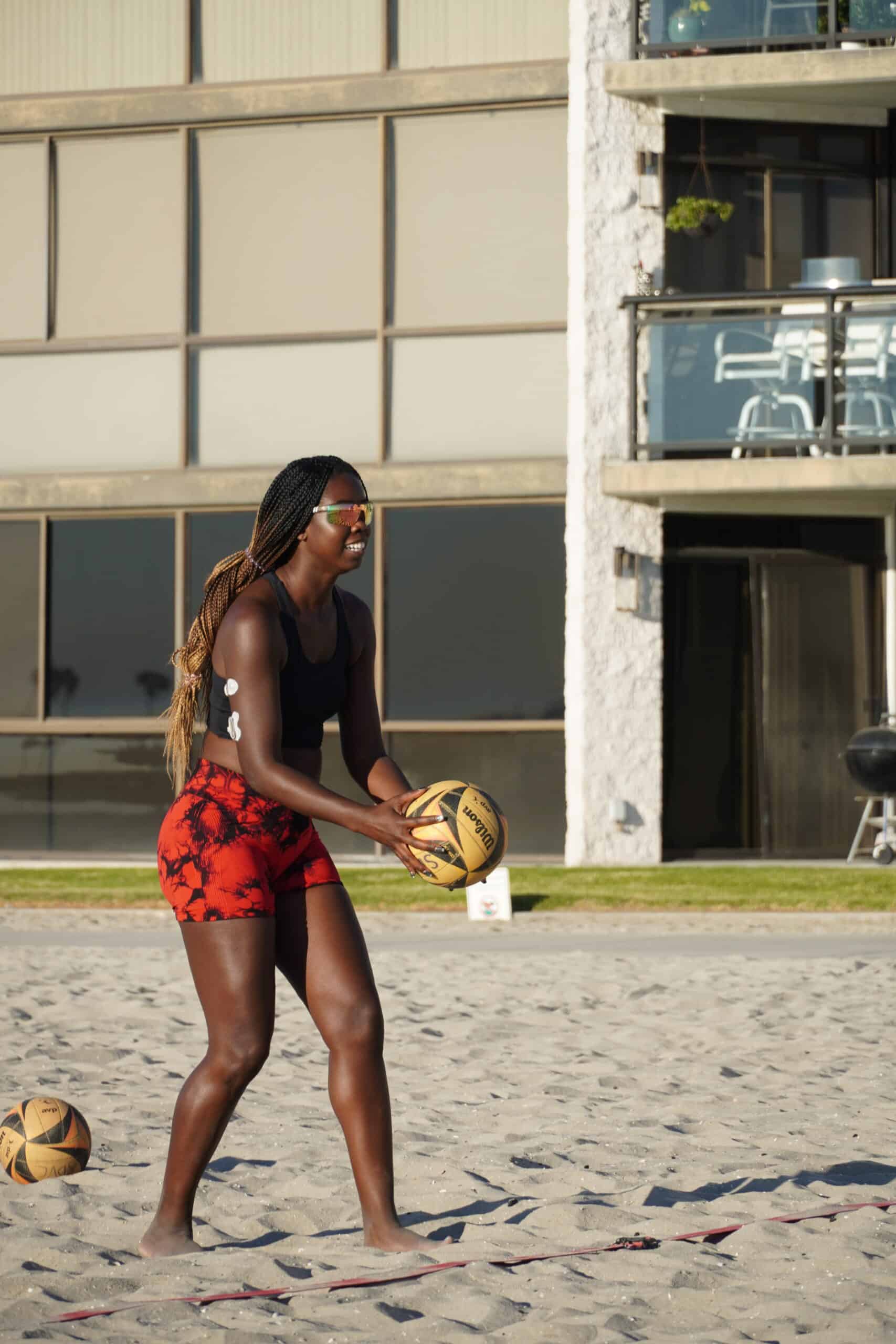
Finding Community—and a Calling
Years later, while doing a fellowship in Chicago, Collins met another woman with diabetes—the first person she’d ever met living with the same condition. Noticing the woman’s insulin pump sparked a revelation.
“I felt like I was on an island by myself… I had my community and my support, just as people, as humans, but not as a diabetic,” she adds.
The woman invited her to a meet-up event with other diabetics, which was her “first no-brainer moment.” She realized, “This is what I’ve been missing,” discovering a “unique community in the diabetes space.”
What began as a small personal project quickly grew. That same week, Collins made the decision to go online and start posting her life. She didn’t want anyone else to experience the loneliness she had. This platform grew into a thriving online community of more than 25,000 people worldwide. Collins also started volunteering and meeting with others living with the disease, realizing, “This is my calling. This is my timing.”
Amplifying the Realities of Type 1 Diabetes
Her authenticity led her to be featured in a Diabetes Research Institute Foundation (DRIF) national PSA called “Our Best Shot”, highlighting the daily challenges of management and the importance of continued research.
Collins wants to show others that diabetes doesn’t have to stop you from living, but she stresses that the work is never done. She notes that while technology is advancing, it is “not perfect,” and managing the disease is a “24/7 constant need.”
“This is why we’re researching, this is why we’re continuing… especially by sharing our stories,” she says.
RELATED: Against the Odds: Qiana Drew’s Triumph Over Diabetes and the Entertainment Industry
She hopes the PSA resonates with others, highlighting the “truth behind living with this chronic illness” that isn’t always seen, while backing the work of the DRIF.
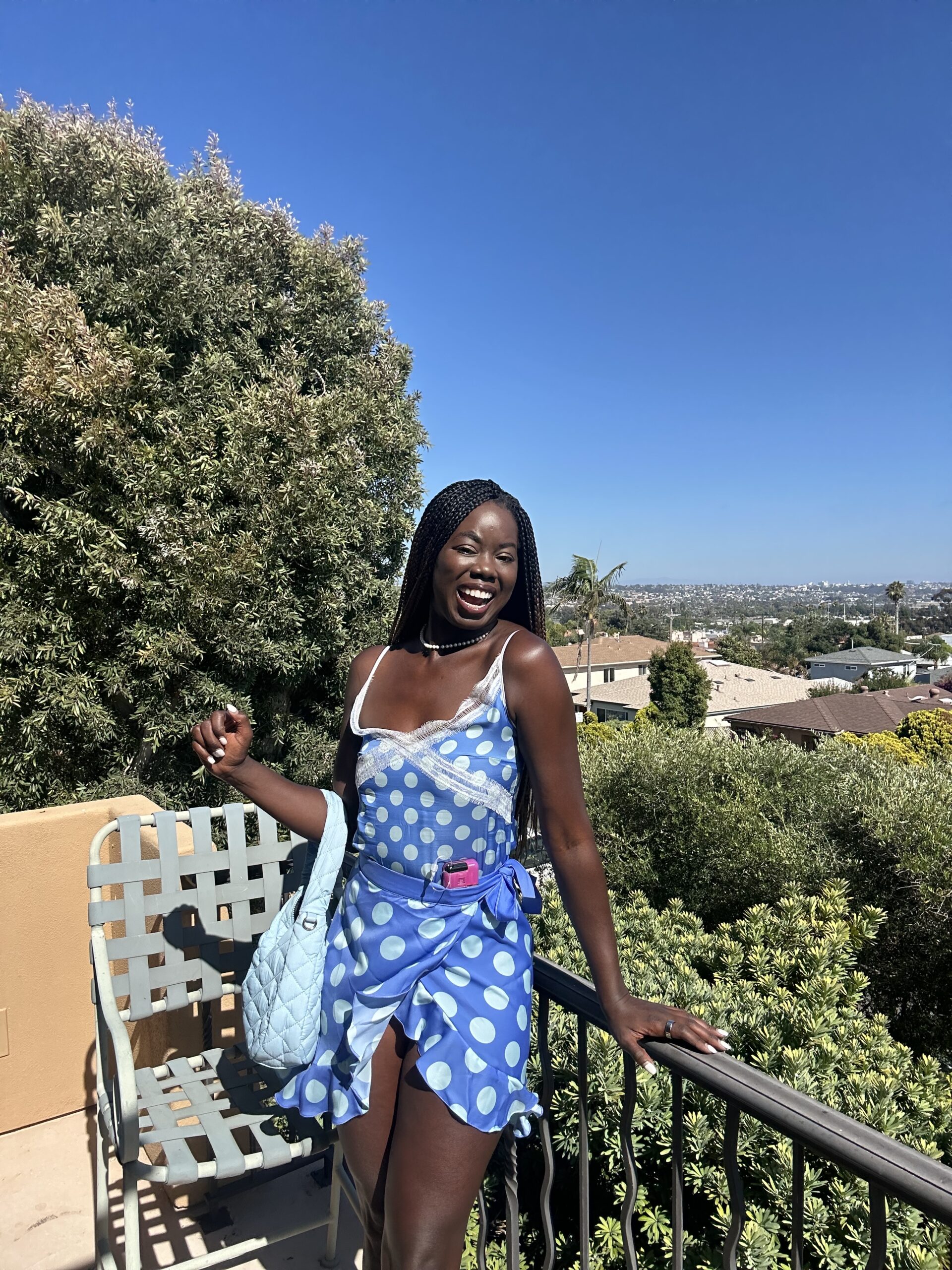
The Science Behind the Story and Holistic Care
Beyond her role as an advocate, Collins is also a scientist, having worked in research labs. She now serves as a hospital executive consultant and certified clinical health and wellness coach.
Her scientific background gives her a unique perspective: “No one’s diabetes is the same. My diabetes isn’t the same as it was five minutes ago. It changes.”
She is a vocal advocate for increasing participation from underrepresented communities in research.
“If we’re not having a seat at the table in these studies, some of these findings might not work for us,” she explains. She addresses the stigma or fear of research, especially in the Black and Brown community, emphasizing that “changing the narrative helps shift the minds.”
Her work in wellness focuses on holistic care, acknowledging that true progress happens outside of the doctor’s office (where patients might only spend 30 minutes every few months) and in everyday life—through diet, movement, and stress management. Collins champions bringing holistic health together with modern technology to help patients thrive.
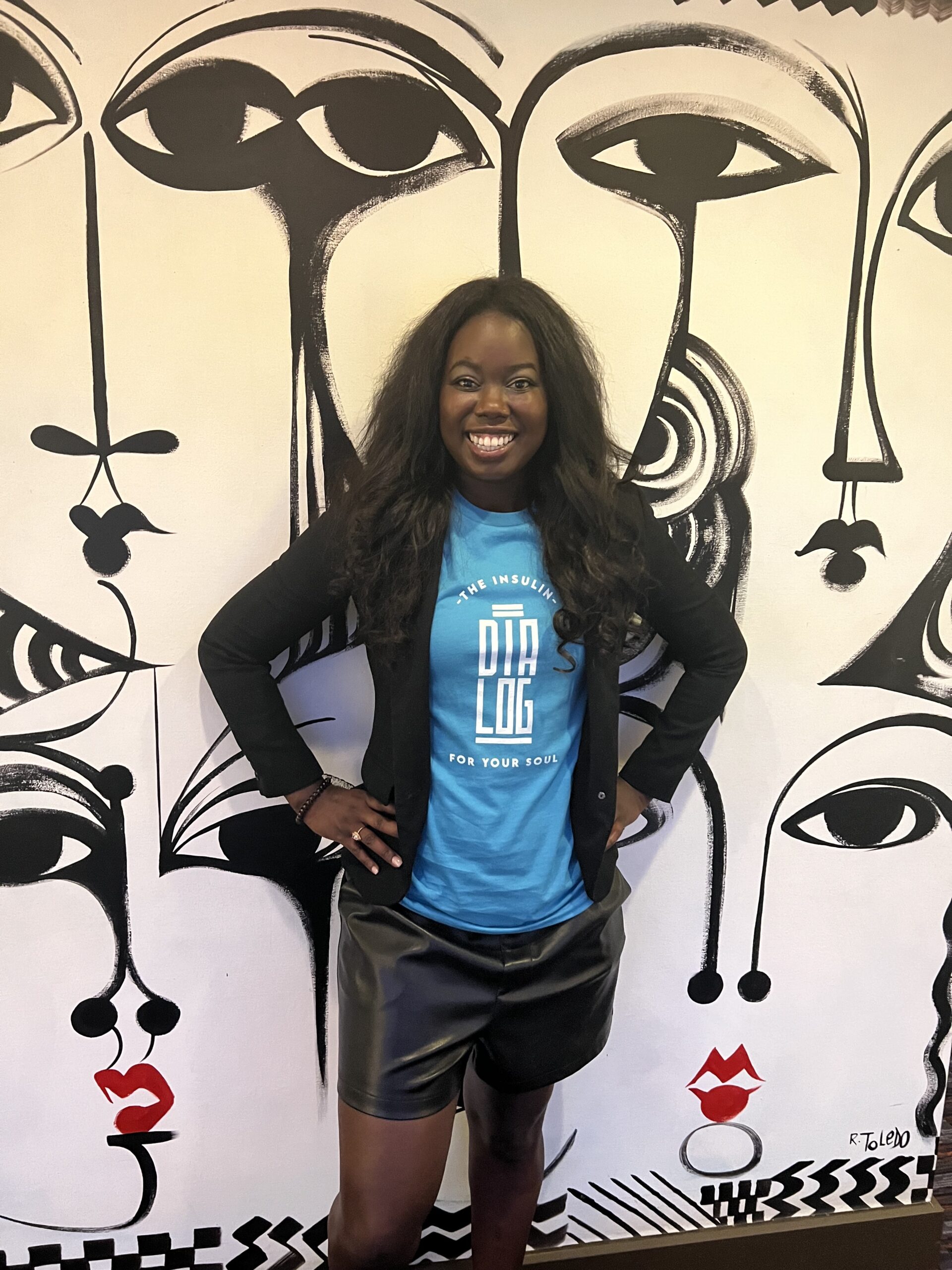
Words for the Newly Diagnosed
For those newly diagnosed, her advice is simple: you can thrive with it.
“Yes, it’s going to be hard… But with the tools and active measures and thinking of things holistically, you can achieve, and you can lead this healthy life,” she says.
If she could speak to her 15-year-old self, she’d offer a message of empowerment and hope.
“It’s okay to be different. Being different is what makes you powerful. It gets easier. There’s hope. There are people working every day to make life better for you — and one day, maybe even to find a cure,” Collins notes.
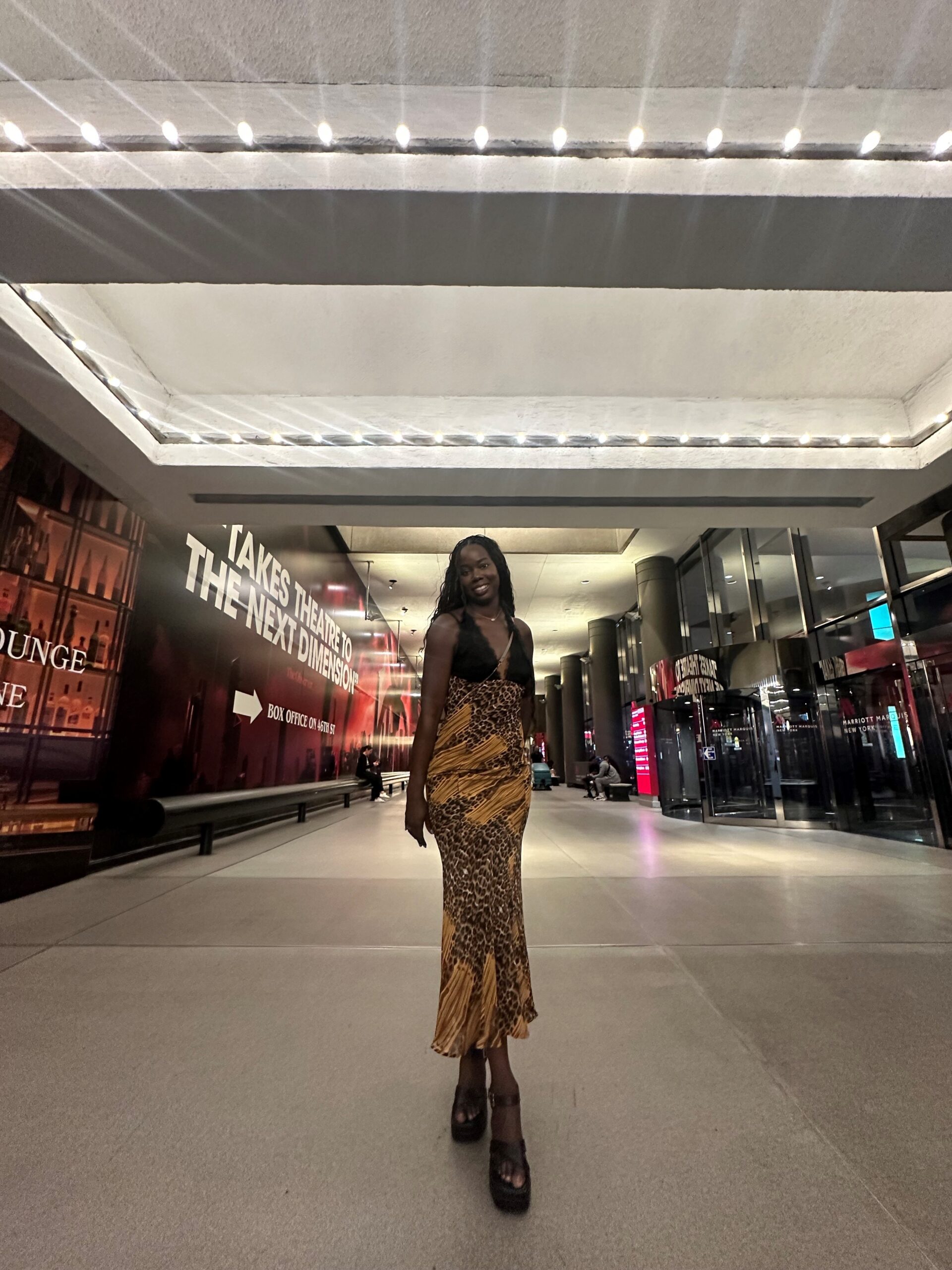
Today, Collins continues to lead and inspire through Danica the Diabetic, her online platform dedicated to connection, education, and empowerment. She’s also developing new media projects to normalize diabetes representation on screen, proving that life with diabetes is “messy, it’s beautiful, it’s real,” but above all, “it’s full of hope.”
You can follow Danica’s journey at @DanicaTheDiabetic on all platforms.



